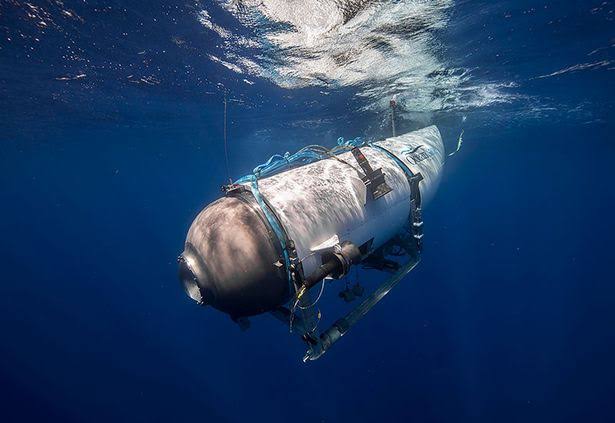In a devastating turn of events, the Titan, a submersible operated by OceanGate Expeditions, suffered a catastrophic implosion during its expedition to explore the wreckage of the Titanic. The vessel, carrying five individuals, lost communication less than two hours after departing on June 20th, and subsequent investigations revealed a debris field near the Titanic’s resting place on the floor of the Atlantic Ocean. As the world mourns the lives lost in this tragic incident, questions arise about the safety of human trips to the iconic shipwreck and the responsibilities of OceanGate Expeditions.
OceanGate Expeditions paid tribute to the five individuals who lost their lives in the tragedy and expressed deep sorrow for their families and the entire explorer community. The UK Prime Minister, Rishi Sunak, conveyed his condolences to the loved ones of the victims, acknowledging the unimaginable difficulties they must be facing.
However, the president of the Titanic International Society, Charles Haas, raised concerns about the safety of human trips to the Titanic wreck. He argued that with advancements in autonomous underwater vehicles, crewed submersibles may no longer be necessary for surveying the wreckage. Haas called for a serious consideration of ending human trips to the Titanic to prioritize safety, especially considering the limited new discoveries expected from these expeditions.
Experts and industry professionals have questioned the safety practices of OceanGate Expeditions. William Kohnen, chairman of the Manned Underwater Vehicles Committee in Los Angeles, criticized the company for operating in international waters to bypass safety requirements. Kohnen emphasized that such loopholes were unwise and highlighted the stringent regulations submersibles would have faced in US, British, or Canadian coastal waters.
The tragic incident may also lead to a review of maritime rules, similar to what occurred after the original Titanic disaster in 1912. Governments and regulatory bodies may seek to establish new guidelines to govern high-end, big-money tourism ventures like those offered by OceanGate Expeditions.
The University of Glasgow mourned the loss of Suleman Dawood, one of their students, who was aboard the Titan with his father, Shahzda Dawood. Suleman, a 19-year-old student, had just completed his first year of studies. The university expressed shock and profound sadness over their tragic deaths.
The implosion of the Titan submersible serves as a poignant reminder of the importance of robust safety measures and thorough security protocols. It is imperative that OceanGate Expeditions conduct a thorough investigation to identify the vulnerabilities that led to the incident. Furthermore, the tragedy emphasizes the need for continuous investment in cybersecurity research and proactive defense mechanisms to combat evolving cyber threats.
Individuals who engage in deep-sea explorations must also prioritize their own security and well-being. Maintaining strong security hygiene, being cautious while sharing sensitive information, and regularly monitoring online accounts are crucial steps to protect oneself from potential breaches or mishaps.
The catastrophic implosion of the Titan submersible during its expedition to the Titanic wreckage has shaken the world. As we mourn the lives lost in this tragic incident, it is important to reflect on the safety of human trips to iconic shipwrecks and the responsibility of expedition operators to prioritize the well-being of their passengers. OceanGate Expeditions and the wider industry must learn from this incident, enhance safety measures, and work towards creating a safer environment for underwater exploration. Through collective efforts, we can mitigate risks, ensure responsible exploration, and honor the memory of those who lost their lives in pursuit of scientific discovery and adventure.
Investigations into the implosion of the Titan submersible are ongoing, with experts and authorities working to determine the exact cause of the tragic incident. The implosion occurred at depths of approximately 13,000 feet (4,000 meters), well within the submersible’s rated capabilities. The fact that the implosion took place despite the submersible’s supposed ability to withstand such pressures raises concerns about the vessel’s design, construction, and testing processes.
OceanGate Expeditions has faced criticism regarding their safety practices and adherence to regulations. Guillermo Söhnlein, co-founder of the company, defended OceanGate’s safety policies and stated that those criticizing the company lack comprehensive information about the submersible’s design, engineering, and testing procedures. However, questions remain regarding the certification and oversight processes involved in the operation of the Titan submersible.
The tragic incident involving the Titan submersible may have far-reaching implications for the future of underwater expeditions and maritime regulations. Governments and regulatory bodies are likely to review existing rules and protocols to ensure the safety of future high-end tourism ventures in deep-sea exploration. Lessons learned from this incident, along with advancements in autonomous underwater vehicles, may shape the future of underwater exploration, with a shift towards utilizing unmanned technology for surveying and mapping underwater wrecks.
This devastating event has also drawn parallels to the original Titanic disaster, as highlighted by acclaimed movie director James Cameron. Cameron, who has extensively explored the Titanic wreckage, noted the similarities between the two tragedies separated by over a century. The loss of human life and the inherent risks involved in deep-sea exploration serve as stark reminders of the awe-inspiring yet dangerous nature of the world’s oceans.
As the investigation progresses and the maritime community mourns the lives lost, it is crucial to prioritize safety and ensure responsible exploration of our planet’s deep waters. The Titan submersible incident serves as a somber reminder of the importance of stringent safety measures, robust regulatory frameworks, and ongoing technological advancements to safeguard human lives and preserve the fragile underwater ecosystems we seek to explore.
The implosion of the Titan submersible during its expedition to the Titanic wreckage has shaken the maritime industry and sparked discussions about the safety and future of human trips to underwater wrecks. The incident underscores the need for comprehensive safety protocols, adherence to regulations, and ongoing advancements in technology to mitigate risks and protect the lives of those involved in deep-sea exploration. It is a time for reflection, learning, and a collective commitment to ensuring that future underwater expeditions prioritize the well-being of explorers and the preservation of our rich maritime heritage.





 YouTube to Get AI-Powered Dubbing Soon
YouTube to Get AI-Powered Dubbing Soon